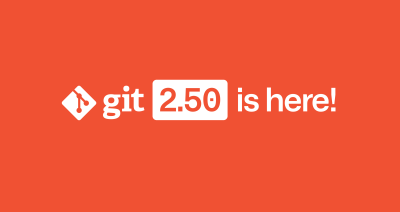An open source economy–built by developers, for developers
Investing in our open source future by supporting the maintainers of today.

From our scientific breakthroughs to the homes we build, our world runs on open source. And this shared digital infrastructure is created by a global team of volunteers. In 2019, we launched GitHub Sponsors to help fund open source work. Since then, we’ve expanded to 68 regions around the world, and made it easier for companies to discover and support their open source dependencies. This has allowed an open source economy on GitHub to flourish with over $25 million contributed to open source developers and projects!
This is just the beginning. Enterprises and foundations also play a vital role, supporting projects like Flutter, Next.JS, and React. In the last year alone, half of first-time contributors worked on commercially-backed projects, and we’ve seen so many examples of developers innovating in this space.
GitHub wants to do more to help. Today, we’re launching two new programs: the GitHub Accelerator, and the GitHub Fund in partnership with M12, Microsoft’s venture arm, to help build new careers and companies in open source.
Not another 9 to 5: announcing the GitHub Accelerator
Careers in open source don’t follow a predictable path today. Maintainers balance enterprise jobs by day and community discussions by night. For many, this isn’t sustainable–especially in places where unpaid work isn’t possible. Going full-time means navigating a maze of sponsorships and grants, licensing gray zones, and starting companies, with a rare few developing into durable businesses. The community needs more examples and better guides on how to take the leap. Especially as GitHub Sponsors creates wholly new ways for developers to commit to open source.
Through the GitHub Accelerator, we will directly fund 20 developers globally who maintain open source projects. Over the course of ten weeks, GitHub will provide a $20K cash stipend and mentorship to fellows in the program. Fellows will work with pioneers in the open source community on how to grow their project, as well as company sponsors to understand how to build durable streams of funding. We will be launching our first remote class in Winter 2023. We’ll be looking for current open source maintainers from around the world who want to pursue full-time work. Apply here by December 31, 2022.
Investing in our ecosystem: announcing the M12 GitHub Fund
GitHub wants to help build the open source companies of the future, too. One area where open source software is particularly successful is when developers are creating their own tools (often integrating with the GitHub platform). We want to invest in this thriving ecosystem and partner with the indispensable open source devtools that live on GitHub .
We’re thrilled to announce the $10 million M12 GitHub Fund. Our investment focus will be open source developer tools at their seed stage. By partnering with companies early, we can support founders as the roots of their community form and their products take shape.
We’re excited to announce our first investment showcasing just what this looks like–CodeSee, which maps repositories so developers can confidently make changes to their code.
With GitHub’s community strength and M12’s investment expertise, we can thoughtfully serve open source startups in building communities and companies that work better together. Startups who would like to get in touch can contact fund@github.com.
An economy in progress
If we want open source to be vibrant tomorrow, we need to invest in the maintainers of today. It starts with affording every developer the choice to contribute full-time.
Our products like GitHub Sponsors and GitHub Discussions help maintainers run productive communities. But, we need to make it easier for any developer to pursue a viable career in open source–regardless of income or location. With the GitHub Accelerator and GitHub Fund, we will experiment alongside the open source creator community on the best ways to do so–jumpstarting new careers and companies in open source.
Tags:
Written by
Related posts

Git security vulnerabilities announced
Today, the Git project released new versions to address seven security vulnerabilities that affect all prior versions of Git.

Highlights from Git 2.50
The open source Git project just released Git 2.50. Here is GitHub’s look at some of the most interesting features and changes introduced since last time.

4 trends shaping open source funding—and what they mean for maintainers
Get insights on the latest trends from GitHub experts while catching up on these exciting new projects.